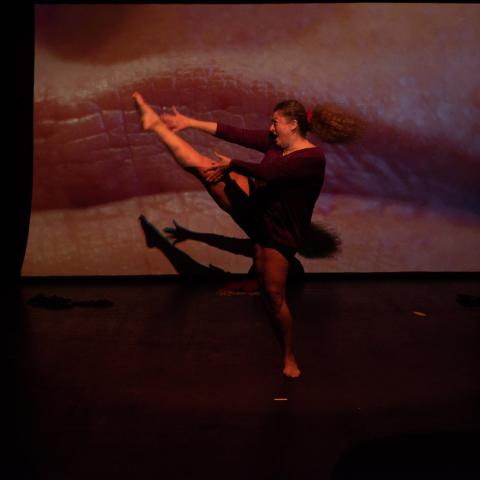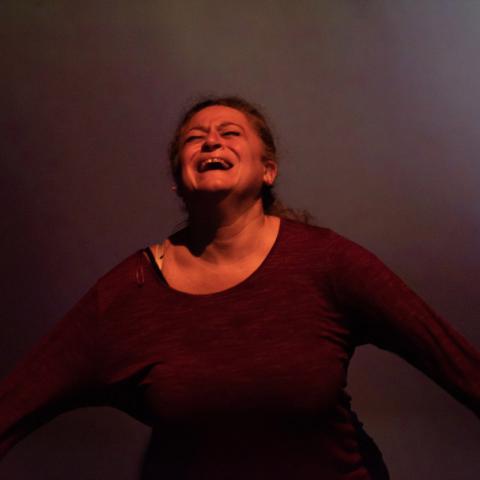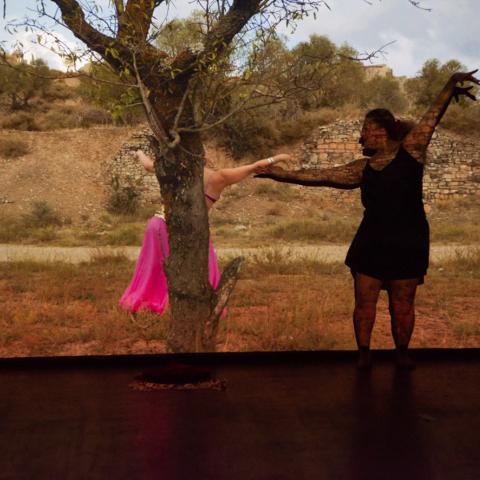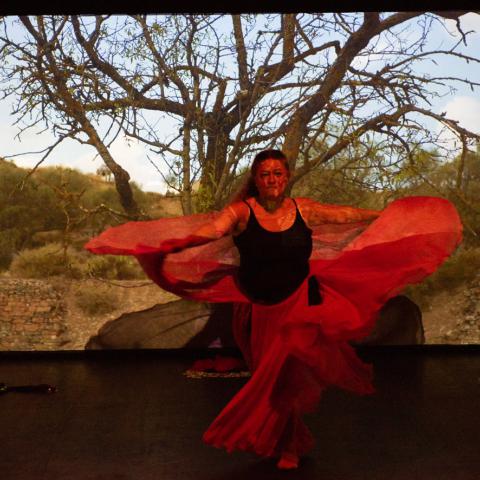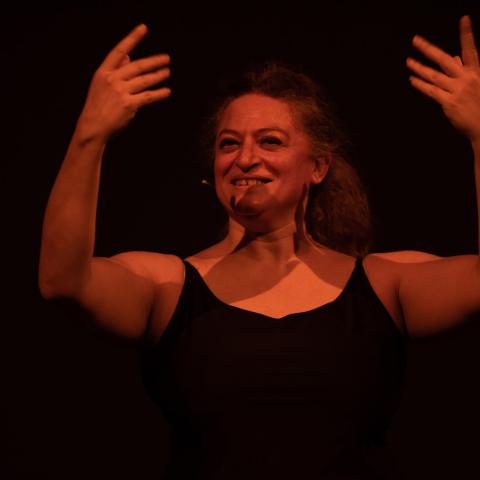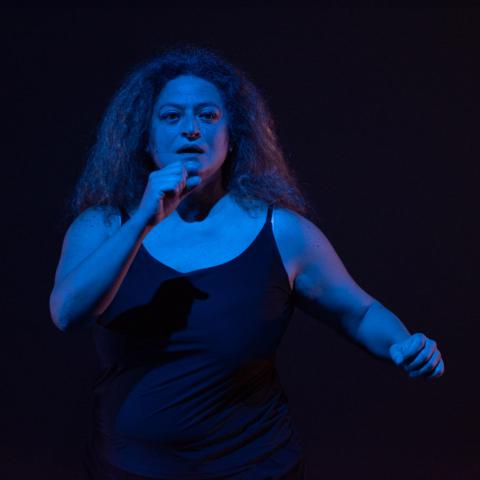/// My Dance
Nora Amin liberates the so-called belly dance from the sediments of history: she inverts the voyeuristic and exoticized perspective into a reflection on one’s own body and history, allowing the audience a new view. My Dance is an attempt to shift power, a reflection on female sexuality, the erotic self, and patriarchal oppression, as well as the impact of colonialism and racism on belly dance and on the image of women that goes with it. The solo performance is also a personal testimony of the author, choreographer and director, who traces her own body history between Egypt and Germany. She searches for an artistic language that embodies both trauma and the ecstasy of liberation and allows for communal dancing as an intimate and decolonial practice beyond the categorizations of white economies.
CONCEPT, TEXT, CHOREOGRAPHY, PERFORMANCE Nora Amin MUSIC & SOUNDTRACK COMPOSED BY Nora Amin & Ehab Abdellatif VOCALS Nora Amin VIDEOGRAPHY Ehab Abdellatif SPECIAL THANKS TO Rusnam & ctrl.xxx.tension for the music of the last dance, and to Ayman Asfour for the violin piece Outlander
NORA AMIN “For 20 years I have been working at the cross-section between performing arts production, arts management/cultural policy/advocacy, and transnational cooperations. Nonetheless, I still live with my label as a belly dancer, only because I am female and Arab. All the criticism that I have made in recent years of racism in the performing arts sphere, and within funding policies, remains a form of theoretical discourse and a form of intellectual activism. With the White Money project, I would like to bring to the stage a certain theatricalisation of the situation, where criticism would be performative, dramatic, and would pay tribute to all the painful situations of discrimination and de-humanization that I have witnessed in relation to 'white money'. It is about re-claiming the stage to criticize the stage, about retrieving our human equality via the performance of the materiality of sexism/racism within the transcultural sphere of performance production. It is also about healing. How can we perform such a history of neo-coloniality in the transcultural production sphere? Is it even 'transcultural' for real? Or is it about internationalising German institutions by bringing in some African, Arab and Asian partners? Are we recycling coloniality under new names? And how to work globally without being othered, and without the labels/categorization of charity, diversity and support, and rather with equality, mutuality and empathy? I guess one way is to take a performative turn dealing with all of those topics, a collective performative de-colonial endeavour…”
NORA AMIN is a writer, director, researcher, performer, and choreographer based in Cairo and Berlin. Her work is situated between literature, theatre/dance and feminism and is borne by socio-political activism that rebels against traditions of patriarchy, authority, coloniality, sexism and racism. She has written several novels and essays. In 2000, she founded the theatre group La-Musica in Cairo and in 2011 the Egyptian Project for Theater of the Oppressed. Before moving to Berlin in 2015, she directed and produced 40 theatre, dance and music productions. She was a fellow at the International Research Center for Interweaving Performance Cultures at FU Berlin. Most recently, she published the essays Weiblichkeit im Aufbruch (2018) on the transgression of female corporeality in public space, and Dance of the Persecuted (2021) on the history of Egyptian Baladi dance.
